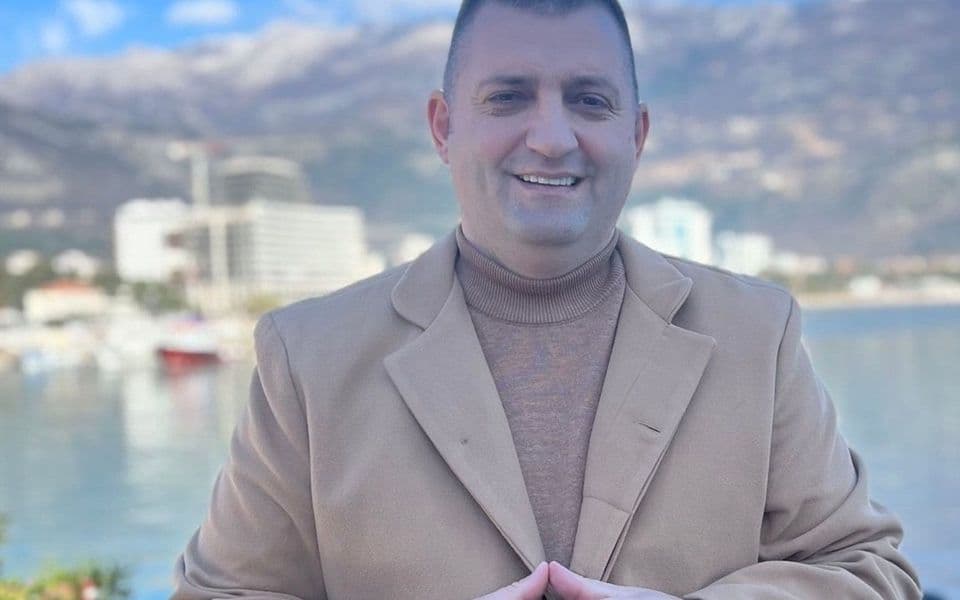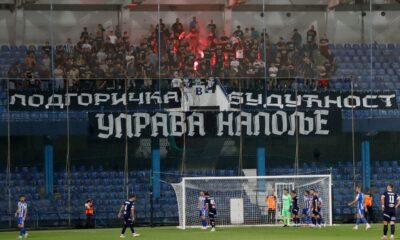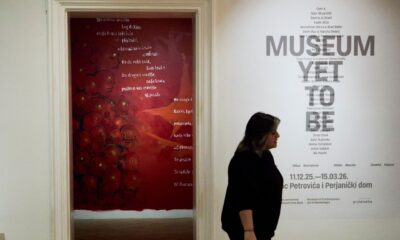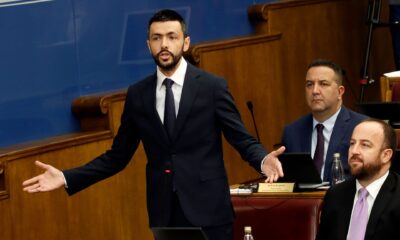Top Stories
August 30 Marks Significant Symbol of Montenegro’s Decline

The recent remarks by Damjanović, the Minister of Culture in Montenegro, have sparked discussions regarding the significance of August 30. This date has been described as a symbol of the nation’s decline, particularly in the context of its political instability and challenges faced over the past few years. The Minister’s statements resonate deeply within a country that has experienced significant upheaval since its independence in 2006.
In his address, Damjanović emphasized that the events of August 30 are not merely historical markers but serve as reminders of the political and social struggles that Montenegro has endured. He pointed out that the day marks the anniversary of Montenegro’s parliamentary elections in 2020, which ultimately led to a shift in power and the beginning of a complex political crisis. This transition was pivotal, resulting in the end of the long-standing dominance of the Democratic Party of Socialists (DPS).
The political landscape in Montenegro has been tumultuous, particularly since the elections. The shift in power has not only altered the internal dynamics of the Montenegrin Parliament but has also raised questions about the country’s future direction, especially regarding its aspirations to join the European Union and strengthen ties with NATO. As Damjanović noted, these aspirations are vital for the nation’s stability and progress.
The Minister’s comments highlight concerns that the political fragmentation in Montenegro could hinder its efforts to integrate into European structures. The ongoing disagreements among political factions have led to a lack of consensus on critical issues, which could pose risks to the country’s international commitments and aspirations.
Montenegro’s situation has drawn attention from various international observers, who are closely monitoring how these political developments will unfold. The complexities of the current political climate make it clear that the path forward will require careful navigation and cooperation among different political entities.
With the backdrop of the ongoing crisis, Damjanović called for unity and collaboration among political leaders to address the pressing challenges facing Montenegro. He urged that the country must work towards a common goal of stability and progress, emphasizing that the future of Montenegro depends on the ability of its leaders to come together for the greater good.
As the nation reflects on the significance of August 30, it serves as a poignant reminder of the need for political cohesion. The way forward for Montenegro hinges on the capacity of its political leaders to rise above divisions and strive for a united front in pursuit of a brighter future. The coming months will be crucial in determining whether the country can overcome its current challenges and fulfill its aspirations on the European stage.
-

 World3 days ago
World3 days agoCoronation Street’s Shocking Murder Twist Reveals Family Secrets
-

 Entertainment4 months ago
Entertainment4 months agoKate Garraway Sells £2 Million Home Amid Financial Struggles
-

 Entertainment3 months ago
Entertainment3 months agoAnn Ming Reflects on ITV’s ‘I Fought the Law’ Drama
-

 Health3 months ago
Health3 months agoKatie Price Faces New Health Concerns After Cancer Symptoms Resurface
-

 Entertainment3 weeks ago
Entertainment3 weeks agoCoronation Street Fans React as Todd Faces Heartbreaking Choice
-

 World4 weeks ago
World4 weeks agoBailey Announces Heartbreaking Split from Rebecca After Reunion
-

 Entertainment6 days ago
Entertainment6 days agoTwo Stars Evicted from I’m A Celebrity Just Days Before Finale
-

 World7 days ago
World7 days agoKevin Sinfield Exceeds Fundraising Goal Ahead of Final Marathons
-

 Entertainment3 months ago
Entertainment3 months agoCoronation Street’s Carl Webster Faces Trouble with New Affairs
-

 Entertainment3 months ago
Entertainment3 months agoWhere is Tinder Swindler Simon Leviev? Latest Updates Revealed
-

 Entertainment4 months ago
Entertainment4 months agoMarkiplier Addresses AI Controversy During Livestream Response
-

 Science2 months ago
Science2 months agoBrian Cox Addresses Claims of Alien Probe in 3I/ATLAS Discovery



















